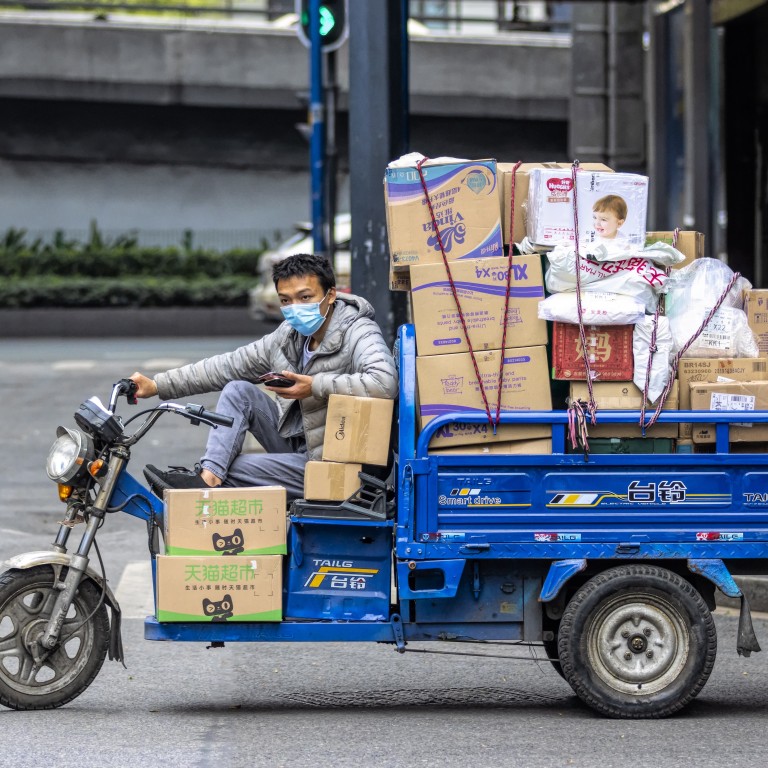
Coronavirus: China’s firms face grim reality as help from Beijing could take too long to trickle down
- Tens of millions of small businesses across China face an uncertain future as the extended slowdown after the Lunar New Year weighs heavily
- China’s central bank has pumped trillions of yuan worth of additional liquidity into the banking system, but analysts and merchants say the measures are not enough
Yang Liu, a logistics company manager in Chongqing, has been closely following the coronavirus outbreak with the fate of her business at stake.
“We can’t earn a dime if business can’t resume,” she said from the sprawling municipality on the upper stream of the Yangtze River in central China.
The Chongqing side requires them to be quarantined for 14 days once they are back [at work]. How can we start operation?
“Many of my workers are from [the neighbouring province of] Sichuan … and the Chongqing side requires them to be quarantined for 14 days once they are back [at work],” Yang said. “How can we start operations?”
“These tendencies must be stopped,” Ou said.
Many of these small businesses – the source of economic vigour and the backbone of employment in China – are now racing against time to survive, with a survey showing that two thirds only have enough cash reserves for two months.
In another supportive move, Beijing has allowed transport, catering, hospitality and travel firms to defer losses across eight years, up from the previous five, so their taxable income will be smaller.
These are all part of a long list of “supportive” measures from Beijing intended to help the battered economy, but analysts and small merchants say they are not enough.
Tang Dajie, a researcher at the Beijing-based think-tank China Enterprise Institute, said that “a large batch of firms could die” this spring before the help from Beijing trickles down far enough to reach them.
“We need cardiotonics” for the economy he said, referencing the drugs which can treat heart failure as a metaphor for the relief measures.
The announced measures from Beijing, which include cosmetic tax cuts, will not act fast enough to solve the pressing difficulties faced by small businesses, he added.
E-commerce firms offer temporary jobs to thousands amid outbreak
Ren Zeping, chief economist at the Evergrande Research Institute, a think-tank run by China’s major property developer of the same name, wrote that the future of many small businesses will be determined in the coming two or three months, with a massive closure of many possible if daily life and production fail to return to normal.
“Under the current [government] policies, we can only survive for 2.17 months. Existing measures are of little help to a majority of small businesses,” said Wu Hai, founder of the Beijing-based Mei KTV karaoke club chain that employs more than 1,500 people, via his WeChat account on Monday.
Wu revealed that his company had only 12 million yuan (US$1.7 million) in its bank account, with monthly fixed expenses of 5.5 million yuan consisting of wages, social security contributions and rent.
We can hold on for two months on our own. Two months later, we will have to cut jobs
“It’s a matter of cash flow,” he added.
At the same time, Wu noted that banks would not lend money to a borrower “without collateral of fixed assets or operational revenue”.
Shi Chuan, the boss of a small restaurant in Sichuan province, said he did not expect banks to lend money to his 300 square metre (3,200 sq ft) shop.
“We can hold on for two months on our own,” Shi said. “After two months, we will have to cut jobs.”

